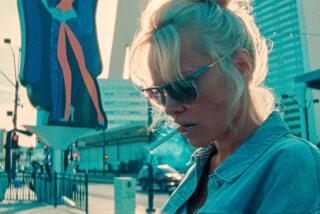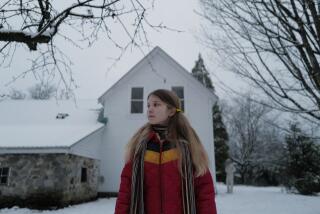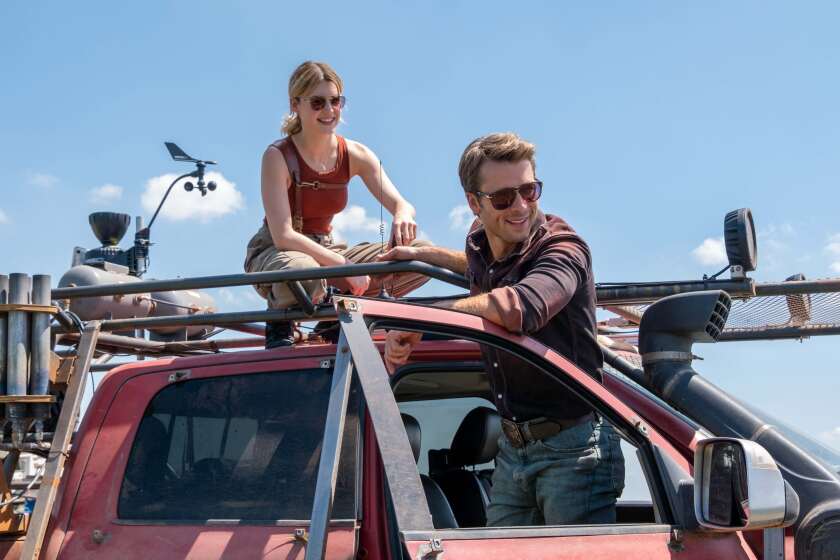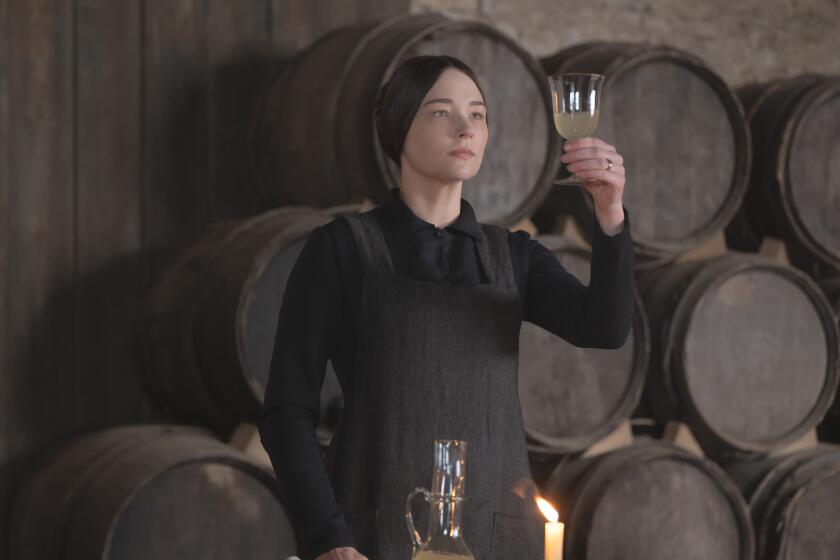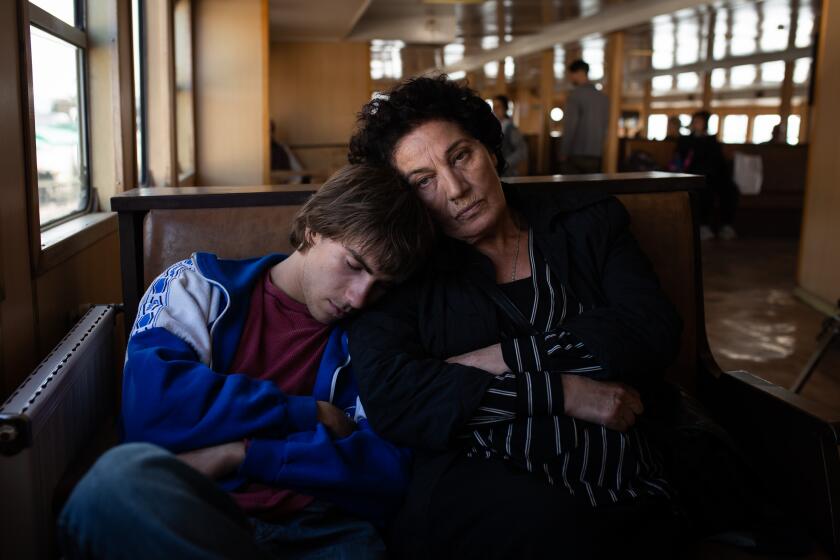MOVIE REVIEW : ‘CAPTIVE’: PSYCHOLOGY OF LIBERATION
“Captive” (at the Music Hall) looks as though it’s going to be yet another retelling of the ordeal of Patty Hearst but, thankfully, writer-director Paul Mayersberg has other ideas in mind.
He catches you as much by surprise as does the exotic trio who abduct a young British heiress from her father’s Gothic-style estate. “Captive” is in fact an eerily beautiful, highly symbolic and intricately designed film that risks pretentiousness to emerge as an elegant psychological thriller about a young woman who experiences an exceptionally dramatic liberation of self.
Rowena (Irina Brook) is already virtually a captive, living in aimless splendor and dominated by her rich, widowed father (Oliver Reed), when she is kidnaped by a tousled blond Frenchman known only as D (Xavier Deluc), aided by his friends (Corinne Dacla, Hiro Arai). Neither terrorists nor extortionists, they feel they’ve freed themselves from the same stiflingly privileged background as Rowena, and now they’re going to do her the favor of liberating her by brainwashing her.
Of course, this sounds crazy and, daringly, Mayersberg does not try to elicit any sympathy for D and his cohorts. He allows them to seem like indolent, self-indulgent types who love to play games in a vast warehouse. Their experiments in brainwashing are repellent, involving sensory deprivation and various forms of psychological and physical torture. Rowena’s gradual identification with her captors is chillingly convincing. Yet just as “Captive” seems at its most off-putting and morbid, we begin to realize that Rowena has all the while been developing an inner resilience. No one in his right mind would endorse D’s methods, but grudgingly we’re forced to admit that in regard to Rowena they seemed to be working.
Yet this is really just the beginning, both of Rowena’s adventures and Mayersberg’s philosophizing, as he contemplates the paradox of freedom and captivity, of love and sacrifice. The film becomes increasingly ritualistic, taking on the similarly ambiguous and challenging metaphorical qualities that charge Nicolas Roeg’s “Performance,” yet all the while suggesting with increasing clarity that only we can liberate ourselves. For a film that constantly threatens to lapse into artiness, “Captive” is actually amazingly well grounded, and Mayersberg’s passion for the visionary is held in balance by the solid, doughty presence of Brook, an actress whose patrician looks are those found in ancient portraits of British nobility and who radiates intelligence in the midst of the most bizarre circumstances.
Brook, daughter of director Peter Brook, unquestionably provides the film with its center and substance, but Reed, in what could be the most restrained and understated performance of his career, is just as fine. There’s a touch of “Jane Eyre’s” Rochester in Reed’s loving, distant yet possessive father, and somehow “Captive” leaves you feeling that Charlotte Bronte would have understood the film very well indeed. Mayersberg is also fortunate in his cinematographer Mike Southon, who has helped him create rich and disturbing images. “Captive,” which is awash in operatic selections, has an equally stunning score by the Edge and Michael Berkeley.
For Mayersberg, who has written such venturesome films as “The Man Who Fell to Earth,” “Merry Christmas, Mr. Lawrence” and “Eureka,” “Captive” (rated R for adult themes) is a dazzling directorial debut. For all its heady flights of fancy, “Captive” is gratifyingly not without wit and humor. “A bourgeois,” Rowena tells a put-upon attorney, “is anyone afraid of losing his place in a queue.” ’CAPTIVE’
A Virgin/Cinetel release. Executive producers Al Clark, Stanley Sopel. Producer Don Boyd. Writer-director Paul Mayersberg. Camera Mike Southon. Music The Edge and Michael Berkeley. Production designer Voytek. Costumes Sheelagh Killeen. Editor Marie-Therese Boiche. With Oliver Reed, Irina Brook, Corinne Dacla, Xavier Deluc, Hiro Arai.
Running time: 1 hour, 43 minutes.
MPAA rating: R (under 17 requires an accompanying parent or adult guardian).
More to Read
Only good movies
Get the Indie Focus newsletter, Mark Olsen's weekly guide to the world of cinema.
You may occasionally receive promotional content from the Los Angeles Times.

